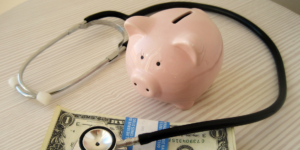Healthy skepticism for the purpose of this paper is the willingness to logically test anything that one considers as “true”, and being inclined to test new information before one accepts it as “true”. Correspondingly, healthy skepticism also includes refusing to condemn something as false unless it can be proven as false. Someone with healthy skepticism may doubt something if it has not been proven to be true, but he would not falsely condemn it, unless he obtained verifiable evidence.
The important of healthy skepticism should be incorporated in many ways. However, some of the few ways to incorporate healthy skepticism is by allowing team members to understand who they are as team members, not as individuals. Healthcare professionals can fail to resolve patients’ complaints and treatments if they exercise unincorporated team environment. That could resolve in patient not receiving proper care he or she needs. Healthy skepticism for the practitioners is to be unwilling to attend anything that is logical, not shown to be proven as truth. Doctors should exercise high priority in healthy skepticism– they must test, examine and show proof of why and how. If in doubts to provide moral and logical healthcare then ask. Predominantly speaking, building an effective healthcare culture should be a top-down approach. Doctors’ responsibilities toward their patients are significant factors in health and wealth of patients.









